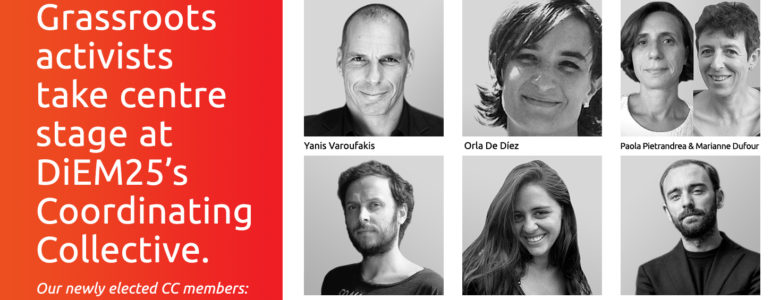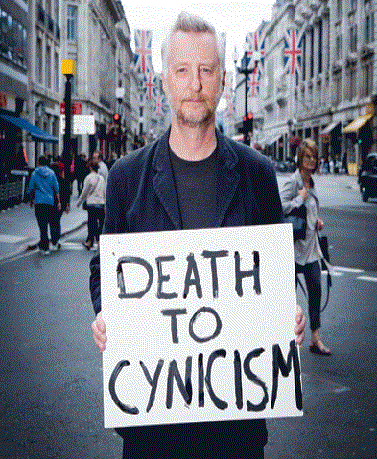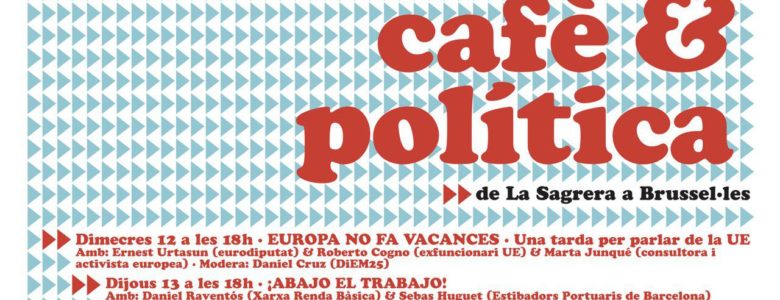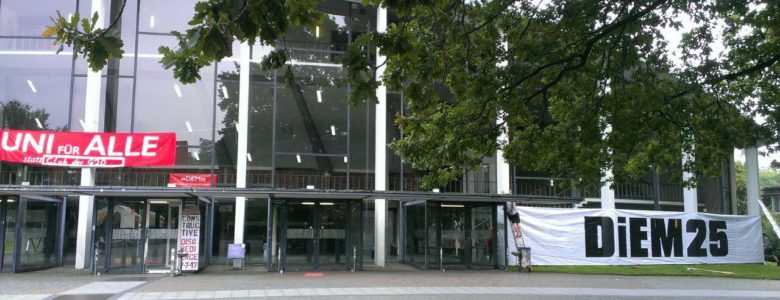
Europe, we have a problem: Houston, Mumbai, Niger – all within one week
Catastrophic flooding in Houston caused by Hurricane Harvey serves as a harrowing reminder to all of the urgent need to force down global greenhouse gas emissions. Every tonne of carbon dioxide released in the air causes the same amount of warming, no matter when and where it is emitted. A warmer atmosphere causes more water to evaporate from the oceans. In turn, the moist air traps even more heat and precipitates more intensely. We’re already halfway to the 2-degree Celsius warming threshold, which scientists say could dangerously and irreversibly destabilize the earth’s climate system. Extreme weather events are becoming the new normal, putting more than half of the world’s cities at risk. Deadly flooding in Mumbai, Niger and Houston, over the past week, offer a preview of more violent storms to come.
Yet governments and carbon-intensive industries are neither acting nor planning accordingly. The Paris Climate Accord signed by nearly 200 nations has no teeth. It’s voluntary. There are no mandatory emission limits.
Getting off this path to surpassing the 2-degree limit involves rethinking and replacing the systems that produce, aggravate and accelerate climate and environmental breakdown, ensuing forced migration and soaring inequality. This entails engineering broad, sweeping solutions that simultaneously drive down emissions, wean the economy off fossil fuels, massively ramp up green investment, maximize the use of renewables, minimize total energy use, make politics and decision-making open, transparent and democratic, guarantee a living income, and expand pro-climate sectors of the economy, including education, healthcare and the arts. These crisscrossing goals lie at the core of DiEM25’s Progressive Agenda for Europe. Given the diminishing window for action, our movement, barely a year and a half old, is gearing up for delivery.
Join us. Your skill and energy are needed now more than ever.
Orla de Díez is a member of DiEM25’s Coordinating Collective.

The results are in: Here’s who was elected to lead our movement
DiEM25 members from across Europe and beyond have voted, and our renewed Coordinating Collective (CC) has emerged.
Meet the women and men chosen to guide our movement in the months ahead!
Yanis Varoufakis read mathematics and economics at the Universities of Essex and Birmingham and subsequently taught economics at the Universities of East Anglia, Cambridge, Sydney, Glasgow, Texas and Athens where he still holds a Chair in Political Economy and Economic Theory. He is also Honorary Professor of Political Economy at the University of Sydney, Honoris Causa Professor of Law, Economics and Finance at the University of Torino, and Visiting Professor of Political Economy at King’s College, London. In February 2016 Varoufakis co-founded DiEM25.
Background in Law and MA in International Relations. NGO Worker – Amnesty International and Academia do Futuro, Trade Policy Editor at Politheor – European Policy Network and Translator. Professional and Volunteer experience with NGOs in Portugal, Serbia and Kosovo dealing with Human Rights, Truth and Reconciliation, Victim Support and Education and Training.
Paola Pietrandrea is an Italian linguist based in Paris, Paola taught at the universities of Bologna, Roma La Sapienza, Leuven, Nanterre, Roma Tre and Tours, where she currently works as an associate professor of Linguistics. Actively engaged in the social and cultural inclusion of migrants, she has co-founded and she coordinates the local association Nogent d’ailleurs. In the summer of 2015, she wrote Avevamo un’altra meta, a travel journal through a Europe in crisis. she joined DiEM25 in 2016, coordinates the Paris1′ DSC, and is a member of the French PNC.
Marianne Dufour coordinates the DSC Lyon and is a member of the French PNC. After 12 years as a logistician-electrician on oil survey ships, then in the French polar scientific stations in Antarctica, Marianne is not afraid to engage in a movement that aims at democratizing Europe: Technical challenges and hostile environments are common to her. She is an astrophysicist, musician and experienced mountaineer. Settled near the Mont Blanc, she now manages logistics projects for emergency services while organizing treks and mountaineering ascents.
Born in 1983 in Osijek (Croatia), from early age until the early 1990s Srećko lived as a political refugee in Germany. Upon returning to Croatia, he finished primary school and high school, and earned degrees in Linguistics and Philosophy at the Faculty of Philosophy in Zagreb. Instead of pursuing a customary academic carrier, Srećko participated in many “occupy” movements in the Balkans, and founded and directed the Subversive Festival from 2008-2013 in Zagreb. He has published more than 10 books translated into more than 15 languages, most recently “Subversion!”, “What does Europe Want?” (with Slavoj Žižek), “Radicality of Love”, etc. Srećko regularly publishes for the Guardian, Al Jazeera, and many other leading newspapers. He is one of the co-founders of DiEM25.
For the past 7 years she has focused on collective learning dynamics that bring about large-scale systemic innovation, with emphasis on the energy transition. As Researcher at TIDES University Institute in Las Palmas de Gran Canaria and Visiting Professor at Jaume I University in Castellón, she explores and designs for the individual behaviours and group interactions, physical and virtual, that enable good ideas to flow from far flung sources into the configuration of better systems and services. Her students practice with systems thinking and design to address the bigger picture of violent extremism by walking in the shoes of people at risk of involvement.
Previous experience includes leading projects, at the Club of Madrid, supporting public consultation on political reforms in Ecuador; constitution building in Bolivia; and new ways for grassroots women to leverage their differences to influence national, regional and global policy on peace and security in the Greater Horn of Africa. Past research includes acclaimed simulation-based exploration with bitterly divided stakeholders into the potential strengths and pitfalls of re-writing the Bolivian constitution. “We drew on the South African experience to design the experiment commissioned by the Bolivian National Congress.” She cut her teeth in the world of complex, unscripted, interdependent work with Médecins Sans Frontières in the early 1990s.
Lorenzo has been working for another Europe since 2007, when still a student he founded European Alternatives, a transnational network and NGO (which is still going strong!). Since then, he has spent many years crossing the continent weaving together movements, activists, and citizens, in a constant attempt to create the pan-European political and cultural space we so badly need. In 2016 he was among the initiators and first CC members of DiEM25. Lorenzo holds degrees in Philosophy and Sinology.
The newcomers above will be joining Renata Ávila, Rosemary Bechler, Noam Chomsky, Brian Eno, Elif Shafak and Agnieszka Wiśniewska on our 12-person CC.
While the following candidates did not win election to the CC this time around, we thank them all for participating and hope they’ll continue working with us. DiEM25 needs you and your commitment to make our movement better!
Runner-up candidates: Ivana Nenadovic (35%), Thomas Seibert (23%), Alexander Nitschke (19%), Signe Tørå Karsrud (19%), Aral Balkan (18%), Michael Fromm (16%), Tony Robinson (15%), Kevin Skelton (14%), Tony Pratschke (11%).
The power of grassroots
By making their voices heard in this pivotal internal democratic process, our members have sent a loud message to the status quo: at DiEM25 we really mean it when we say that we believe in grassroots power!
This is exemplified by the 15 DiEMers who ran for a seat in the CC, as they all represent the pan-European, grassroots essence of our movement: women and men from very different backgrounds and countries, and from across the political spectrum. They all stand together ready to fight for the movement we all believe in. No other political organisation can pride itself on this level of openness and inclusivity, at such an international scale.
Background to the vote
Following DiEM25’s Organising Principles (OPs), six of the twelve seats in the movement’s CC were up for renewal this summer. Candidates could send their submissions from June 25 until July 25, and the voting period, which started on August 1, ended at midnight yesterday.
Candidacies to the CC were open to all DiEMers who adhered to basic criteria like how long they have been a member of the movement, and how much time they could give to working on the CC, among others.
Similarly, to ensure transparency and a genuine democratic process, voting was open to members that joined the movement before the elections were announced. Additionally, members’ accounts needed to be verified and active, for them to be able to vote.
As with all DiEM25´s internal democratic procedures, all transnational votes had equal value and were anonymised upon being cast. Furthermore, our members voted as per our OP’s gender-balance principles.
In addition, and though they were not required to do so this time around, our co-founders, Yanis Varoufakis and Srećko Horvat, decided to put their seats up for contest to further underline DiEM25’s democratic spirit.
The next CC elections will take place in the summer of 2018.

Our shared values of humanism and democracy are stronger than any act of terror. #TotsambBCN
Once again, we are shocked and heartbroken by another outrageous terror attack in less than a week — this time in Barcelona. An attack on this city’s people, on Spain, on Europe and on the values we all share at DiEM25.
Once again, and as we expressed a few days ago, as DiEM25 we are steadfast in our opposition to all forms of discrimination, misanthropy and hate — whether they occur in the streets of Charlottesville or in Barcelona.
Once again, we are reminded in times of tragedy that our shared values of humanism and democracy are stronger than any act of terror.
We extend our deepest condolences to the families and friends of those killed and wish a speedy recovery to all those who have been injured. We also stand with Barcelona’s Mayor, our dear friend Ada Colau, and with the Spanish authorities during this difficult time.

Cheer up, (or) it might never happen
By Kate Fistric
Kate is a member of DSC Frankfurt and part of the German PNC. She contributed this article in her personal capacity. The views expressed are her own and do not necessarily represent the views of DiEM25.
If, at the end of 2017, we sum up the year with ironic congratulations because we have somehow avoided nuclear war (fingers crossed), then that says as much about our attitude towards the world in 2017 as it does about the state of the world itself.
Political isolationism, legitimised nationalism, impending climate change, a constant flow of desperate refugees, the gig economy, unceasing debt and hardship in the periphery, housing crises: you name it, we’re facing it. The current global context hardly lends itself to optimism.
And perhaps unsurprisingly, in the face of these seemingly overwhelming challenges, we have become morose and pessimistic. As the world has darkened, so has our mood. Snarkiness, cynicism and divisiveness have become the order of the day.
This renders us immobile and incapable of addressing the multiple threats confronting us, at a time when we need to be as strong, cooperative and positive as possible.
Antipathy on autopilot
When we look at the modern activist movement, it is characterised by a single prefix: anti. Anti-capitalism, anti-globalisation, anti-fascism. This may sound like a truism – a protester is obviously protesting against something. But viewing problems only from the perspective of the oppressed or ‘put-upon’ can be very limiting. Put simply, anti-ism has made us very good at wanting to ‘break things’ but left us poorly equipped to propose positive, constructive alternatives.
When we start to consider a pithy Facebook takedown or a dismissive all-caps tweet to be a good day’s activism, it’s clear that both our approaches and our attitudes leave much to be desired. Social media, in particular, has made dialogue cheap and superficial, turned ‘activism’ into ‘re-activism’ and elevated the bully to the status of hero.
As the futurist Alex Steffen notes, “cynicism is often seen as a rebellious attitude in Western popular culture, but in reality, our cynicism advances the desires of the powerful – cynicism is obedience.”
The power of positive thinking?
So, is our subscription to cynicism, both conditioned and deliberate, actually doing us more harm than good?
No-one has been more burned by this routine misanthropy than the British, who last year voted to leave the European Union. The reasons for Brexit are clearly myriad and complex, but one important factor was the Leave side’s ability to employ the art of cynicism to great effect. Theirs was a negative campaign, full of straw men, empty promises and jingoism. Foreigners were taking jobs from British workers, Brussels had usurped the role of Westminster, and tax payers were paying too much to shore up floundering nations. Everything was about loss, or about the fear of loss.
For the Remain side, a useful counterstrategy might have been one of positivity or constructive criticism, by proposing practical, desirable changes to the EU and casting Britain as a leading progressive power.
Instead, Remainers managed to tie themselves in knots within a paradox of their own making: that they needed to convince a sceptical public to put their faith in a deeply imperfect institution (often one that they, themselves, didn’t believe in). So, rather than spearheading progress, they ended up doing one of two mutually unhelpful things: either denying the inadequacies of the union completely, or weighing them too heavily. The first approach resulted in a disingenuous rictus grin that was fooling nobody, and the second merely added grist to the Brexiteer mill.
It would be facile to say that the Remain side would have been victorious if only it had been a bit more cheerful about the whole thing. Nevertheless, there is much to be said for having the confidence to say something positive when all around are doom-mongering.
Why so blue?

Billy Bragg
Our propensity for ‘anti-ism’ (regardless of whether it’s used for positive aims) comes from our lack of democratic robustness. It is a result of a widespread feeling of disenfranchisement. Today, with untouchable, tax-dodging, multinational corporations and a recently rediscovered nostalgia for autocracy, citizens feel increasingly powerless. Things seem to be done ‘to us’, not ‘by us’ and consequently our only recourse is re-action.
In a functioning democracy, where citizens believe that they are in control of their own destiny, there would be little need for this passive, re-action approach. Instead, citizens would shape policies and systems through an effective democratic process, in ways that serve them and those around them. Systems that that encourage prosperity, while providing security and prospects for those who are struggling. Having this freedom, opportunity and confidence in the power of the demos engenders creativity and imagination. Lacking it leads to cynicism and myopia. As Billy Bragg has observed, “cynicism is the greatest enemy” to those trying to improve the world.
Optimism ≠ delusion
Optimism doesn’t mean running around pretending the world is perfect. It’s not about denying reality or tolerating injustice. It’s about imagining better.
We won’t wake up tomorrow in a utopia. Our governments won’t automatically uphold democratic principles, and we will continue to feel put-upon, rather than empowered. So isn’t it inevitable that cynicism will prevail?
Not at all. But, in a sense, the cart may need to go before the horse. Democracy won’t come overnight, so we will need to somehow bend our thinking around this obstacle, and resist our own tendency towards hot-headed blanket condemnation and kneejerk reaction, in order to propose constructive measures to effect our utopia. In short, we need to pause, imagine and pursue the world we want, instead of expending our energy wrangling over what has already been dictated to us. Resistance is key, but it should be a means to an end, and that end should first be defined.
Simply by not rejecting outright the systems that are in place out of hand, we are not condoning them. But we need to view them, not from the one-dimensional and passive perspective that we’ve been trained to, but from a positive, compassionate and intelligent one that allows us to imagine better. DiEM25’s European New Deal is an example of this approach. It recognises the bleakness and the despair, and uses this as a springboard to develop pragmatic, plausible policies to counter our problems. Rather than wallowing in the mire, we can, and must, envision a fairer, safer world, and use this vision to offer citizens genuine alternatives. Cynicism shouldn’t fashionable, and optimism shouldn’t be shameful.
So, don’t grumble; give a whistle. I mean, what have you got to lose?
References for links (as marked with underlining in the text):
Steffen, Alex (2008) Worldchanging: A User’s Guide for the 21st Century, Abrams (referenced in https://www.theguardian.com/books/2007/mar/17/society)
Bragg, B, quoted in The Guardian, 1 January 2011, https://www.theguardian.com/theguardian/2011/jan/01/billy-bragg-saturday-interview
Monty Python (1979), Life of Brian, https://www.youtube.com/watch?v=SJUhlRoBL8M
Bragg, B, quoted in The Guardian, 1 January 2011, https://www.theguardian.com/theguardian/2011/jan/01/billy-bragg-saturday-interview
Monty Python (1979), Life of Brian, https://www.youtube.com/watch?v=SJUhlRoBL8M
Monty Python (1979), Life of Brian, https://www.youtube.com/watch?v=SJUhlRoBL8M

The white supremacist terror in Charlottesville is another sign of the rise of the nationalist international
They carried torches and chanted hateful slogans against the black, Jewish, immigrant, and LGBTQ communities. A car ploughed into the crowd. A 32-year-old woman was murdered and 19 protesters were injured. And the US President, Donald Trump, made a shamefully calculated statement condemning the violence “on many sides.”
Trump was right that there are “sides” though: there are the bigots who shouted, “hail Trump!” on one side inciting hatred and violence, and the anti-racist counter-protesters who dared to rally in opposition.
Now is the time to stand up and make our voices heard. We know what side we are on.
We at DiEM25 stand in solidarity with the counter-protesters and with the victims of this act of vicious extremism. We stand up for a bold, transnational multiculturalism from below.
Europeans must link arms in a joint international front against hate and the rise of the nationalist international wherever it emerges.
As DiEM25 we are steadfast in our opposition to all forms of discrimination, misanthropy and hate.
(Photo by Samuel Corum/Anadolu Agency/Getty Images)

A shame for Europe (and unfortunately for SYRIZA too)
Back in the summer of 2015, when the troika crushed the Greek Spring, they also sacrificed Democracy and Reason. That summer, even we, who disagreed with the government’s capitulation, believed the SYRIZA administration would at least hold high the principles of Humanism regarding the refugee crisis. Some months later, the EU lost its soul by signing the controversial EU-Turkey refugee deal, to which SYRIZA was a signatory.
The story of Shabbir Iqbal, imminently threatened with deportation to Turkey, is a graphic illustration of the crime that is EU policy on the ‘refugee crisis’ – to which SYRIZA is a willing accomplice. Stories like Shabbir’s expose the true scandal of a policy for which the current leaders of EU countries (including Mr. Tsipras) will one day have to answer to History.
Several months ago, we met Shabbir, the person who today symbolizes DiEM25’s campaign to #StopTheDeal between EU and Turkey. It is a story that is well worth spreading far and wide.
Disgracing and deporting a Good Samaritan
Shabbir is a 40-year-old electrical engineer from Pakistan. One day last December 2015, in the small town where he lived in Pakistan, a local group of Islamic extremists attacked Shabbir’s neighbour, a Christian. Shabbir came to his defence, and for this he was labelled a heretic and forced to flee his town. Several members of his family and close circle have now been murdered by the extremists in a series of reprisal killings, and his wife and children have gone into hiding.
After a horrific journey, Shabbir lives in a state of limbo in Lesvos, Greece, where he has remained since March 2016, his appeals for asylum having been turned down. We have recently learned that over the next few days he is going to be deported under the terms of the EU-Turkey deal. This is despite the fact that if Shabbir returns home, the extremists will almost certainly try to kill him.
There are thousands of people like Shabbir: people trying to escape war, seeking refuge in Europe, a democratic and peaceful place, and instead of help they find denial, walls, concentration camps and deportations.
The US and major European countries responsible for their unacceptable record of failed and unjust wars in Syria, Iraq, Libya and Yemen; for selling weapons to authoritarian and terrorist-friendly regimes like Saudi Arabia; for looking the other way while Erdogan oppresses the Turkish people – bear their fair share of responsibility for the situation that makes refugees abandon their homes.
So, while the West – and the EU in particular – has to change its foreign policy if it is to make permanent progress in solving the ‘refugee crisis’, they can at least begin by abandoning immediately their “refugee camps and then deport” policy; a policy not only in contradiction with Europe’s values of solidarity and humanism, but also with the Geneva Refugee Convention.
The agreement between the EU and Turkey on refugees is just one more proof of how irrelevant the EU leadership is, and one more example of how hypocrisy is becoming an integral part of how the EU deals with major challenges. Just as in the economy, where they invert the truth, making insolvent debts viable and stagnation a solution, the EU characterises Turkey as a safe country and calls concentration camps reception centres, to delude itself that all is well for people trying desperately to escape war and terror.
Negative developments like Shabbir’s deportation together with the desperate loss of hope of refugees in detention, highlight the urgency of putting a stop to the shameful EU-Turkey deal.
Sign the petition to #StopTheDeal

Poland: Autocracy wasn’t built in a day
A good backgrounder on the developing crisis in Poland by Political Critique’s Jan Smoleński.
[UPDATE] On July 20 afternoon, the Polish parliament voted to pass the bill: 235 to 192 with 23 abstentions. Unless President Duda will use his veto, the law will come into effect before the next legislative session.
The current assault on the independence of the judiciary by Poland’s ruling Law and Justice (PiS) party has drawn thousands of people to the streets. This attack has rightly been denounced as undermining the principle of separation of powers and the system of checks and balances. However, rather than interpreting it either as an assault on the republican and liberal democratic principles in the search for unrestrained power, or a blitzkrieg against the courts (the standard liberal democratic criticisms), it should be viewed as an element of a broad and comprehensive regime change. It is the latest – but probably not the last – step in the so-called “good change” PiS have been busy with since their electoral victory in 2015.
Three new statutes (two of them already passed by the parliament and awaiting the President’s signature and one still under parliamentary consideration) will give PiS control over the judiciary. The first bill gives the party effective control over the membership of the National Council of the Judiciary, a constitutional body responsible for judicial nominations. The second bill gives the Minister of Justice the power to appoint chief judges of lower courts. The third, still under debate, completes the takeover: in its current form, the it ends the mandates of all Supreme Court judges – except those whom Zbigniew Ziobro, the Minister of Justice personally allows to stay. The law also creates a “Disciplinary Chamber” within the Supreme Court, which will determine disciplinary actions against all judges in the country; the proceedings will be initiated at Ziobro’s demand. It is important to note that the Minister of Justice is at the same time the Prosecutor General and has the right to personally direct and supervise any investigation he wants.
Half a kingdom to anyone who finds any constitutional justification for any of this. If these three blatantly unconstitutional statutes are enacted, Law and Justice will practically be able to pack the Supreme Court and all lower courts with their loyalists, and will wield a disciplining tool against those who, after being appointed, become too independent and, for example, decide to rule against the prosecution. The reshuffling of the Supreme Court will also give the ruling party the final say (albeit indirectly) in the electoral process – as it is the Supreme Court that investigates electoral irregularities and decides on the legality of elections. Law and Justice, through their Minister of Justice, will be both a player and a referee.
Ever since their victories in the presidential and parliamentary elections in 2015, Law and Justice have (unconstitutionally) appointed loyal judges to the Constitutional Tribunal, they have taken over public media, and introduced tacit partisan criteria in the selection of civil servants.
The Tribunal has already been proven docile. The public media have turned into a propaganda tool of the parliamentary majority. Civil service offices have been slowly staffed with party loyalists. Additionally, PiS have created the “Territorial Defense,” a paramilitary formation subordinate directly to the Minister of Defense. It also changed the school curriculum to reflect and promote nationalistic and fundamentalist Catholic sentiments, which bought the support of the Church with hefty donations. Last but not least, the public assemblies law privileges state-sponsored events, and the to-be-created National Freedom Institute will give the government the control over civil society organizations. Although the statute that effectively allows the central government to dismiss local authorities was vetoed by the Notary Public-in-Chief Andrzej Duda in an extremely rare act of defiance (or a deliberate smokescreen), it does not mean that the desire to subdue local authorities has disappeared.
The recently proposed bills on the judiciary continue the series of changes. Together they concentrate political power in the hands of the incumbents and, as political practice under PiS has shown, drastically tilt the balance of powers towards the executive branch, reducing the legislative to a machine for pushing through statutes, and the judiciary to an enforcer of laws designed by the executive and deliverer of desired rulings. Anyone who has doubts about it should watch the sorry spectacle of shouts and booing on the part of the ruling party’s MPs which took place during the parliamentary debate over the Supreme Court bill, or listen to Minister Ziobro, who determines who is guilty even before the trial ends.
The changes also blur the boundaries between different branches, as the executive extends its reach over others and becomes involved in their functioning. Importantly, and again as recent political practice has shown, in this PiSocracy, elections are reduced to a plebiscite and electoral victory is considered a mandate to pursue whatever policies the winner desires, despite potential opposition and criticism. At the same time, civic engagement is to be limited to cheering at state-sponsored rallies, like the one organized to welcome Donald Trump or the hate shows during the monthlies of the Smolensk crash, and any independence non-governmental associations might have will be diminished.
Law and Justice justifies this regime change as a sine qua non of a fixing and strengthening of state institutions: courts need to be purified from the remainders of communist apparatchiks allegedly still present in the judiciary, local authorities need to be purged of entrenched cliques, the public media need to present an alternative to privately owned outlets serving old elites. To a certain extent, these diagnoses correspond to sentiments among some sectors of Polish society, for whom the state often has the face of an arrogant local judge or a corrupt local official.
Ironically, however, the way in which this change is implemented simply destroys state institutions. In a revolutionary fervor, loyalty to the party is favored over competence – crown examples of which are Julia Przyłębska, the chief justice of the Constitutional Tribunal who does not even have a doctorate in law or Bartłomiej Misiewicz, the ex-spokesman of the Ministry of Defense who has not even finished college despite studying at three different schools. In the propaganda war against the still independent institutions, the regime targets their prestige and legitimacy. Finally, the constitutionally defined hierarchy of power has been replaced by party hierarchy.
The efforts are coordinated by Jarosław Kaczyński, officially only an MP and the chairman of PiS. His control over President Andrzej Duda and Prime Minister Beata Szydło stems from his grip on PiS’s rank-and-file on the one hand, and his charismatic power over his party’s solid electorate on the other. It is no secret that both Duda and Szydło got their offices thanks to Kaczyński’s blessing and so far it has been clear that their political careers can end at his whim. At the same time, Kaczyński remains beyond constitutional accountability for the violations of the Constitution performed by his party subordinates.
The three statutes subordinating the judiciary to the government have not yet been enacted, and, given recent declarations by Andrzej Duda (who seems to have remembered that he is not a notary public but the President who, as the Head of State, has the power to veto), they might not be implemented in their most egregious forms.
Nonetheless, the watered down versions of the bills will not save the independence of the judiciary. The opposition faces a difficult double task: on the one hand, it needs to do everything that is possible to stop the changes introduced by an opponent who seems not to care about criticism. On the other, it needs to come up with ways to restore constitutional culture. Otherwise, even if the PiS’ rule miraculously turns out to be brief, the legacy of “good change” may taint Polish politics not for years – but for decades to come.

DiEM25 Barcelona DSC- Activities 12-14 July
DiEM25 Barcelona invites you to attend “Sol & cafè & política”. A few days to talk about Europe.
On Wednesday, July 12, at 6.00pm, we will talk about the internal functioning of the European Union, we will make some history and we will unveil some of the myths that we have assumed. For this day, we will host the following speakers:
On Thursday, July 13, at 6.00pm, we will address economic topics, such as basic income and labor issues, such as the workers’ and organized struggle. The following guest-speakers will participate on this round table:
On Friday, July 14, at 6.00pm, we will screen the film – documentary, “Mami, ya sé dónde está el dinero.”
The film’s director, Arturo Cisneros, will be there to join our discussion.
All activities are free and will be carried out at the Ateneu Sagrerenc-Espai 30, in carrer de Hondures, 30, Barcelona.
We count on you to democratise Europe!
DiEM25 Barcelona DSC – Jornades d’activitats 12-14 de juliol
DiEM25 Barcelona us convida a assistir a les jornades d’activitats “Sol&cafè&política. Uns dies per parlar d’Europa”.
Dimecres 12, a les 18h, parlarem sobre el funcionament intern de la Unió Europea, farem una mica d’història i desvetllarem alguns dels mites que tenim assumits. Per a aquesta jornada, comptarem amb els següents ponents:
Dijous 13, a les 18h, abordarem aspectes econòmics, com la renda bàsica; i temes laborals, com la lluita obrera i organitzada. En aquesta taula, hi participaràn:
Divendres 14, a les 18h, projectarem la pel·lícula – documental, “Mami, ya sé dónde está el dinero”. Comptarem amb:
Arturo Cisneros, director del film, i després farem un col·loqui amb ell.
Totes les activitats són gratuïtes i es duran a terme a Ateneu Sagrerenc-Espai 30, al carrer d’Hondures, 30, Barcelona.
Comptem amb tu per a democratitzar Europa!

#G20Hamburg – an update from DiEM25's members and activists on the ground
As mainstream media is broadcasting live from Hamburg, covering the G20, the demonstrations, conflicts and brutality on the streets, we can only but confirm that the situation on the ground is dire. Hamburg’s citizens and protesters are facing a challenge, which is indeed unusual and highly explosive: trash and cars are burning, there are fences and barricades everywhere. The police and public authorities are on the brink, which makes the situation even more volatile.
And the G20 summit just got started. Everywhere in the city centre protesters are blocking the streets, the police are calling for more support, helicopters are hovering the sky… And DiEM25 is in the middle of it all, inviting everyone to join our “Constructive Disobedience” – our way to move forward.
We’ll gather at Hamburg’s University tonight at 7.30pm, a location right at the edge of the city-imposed security zone and next to Messezentrum, where the G20 summit is actually taking place. If you can’t join us in Hamburg, follow our live stream here.
Carpe DiEM25 from a city in state of emergency.
DiEM25 members, volunteers and activists in Hamburg.
#DISobey
Learn about DiEM25’s activities around #G20Hamburg here.